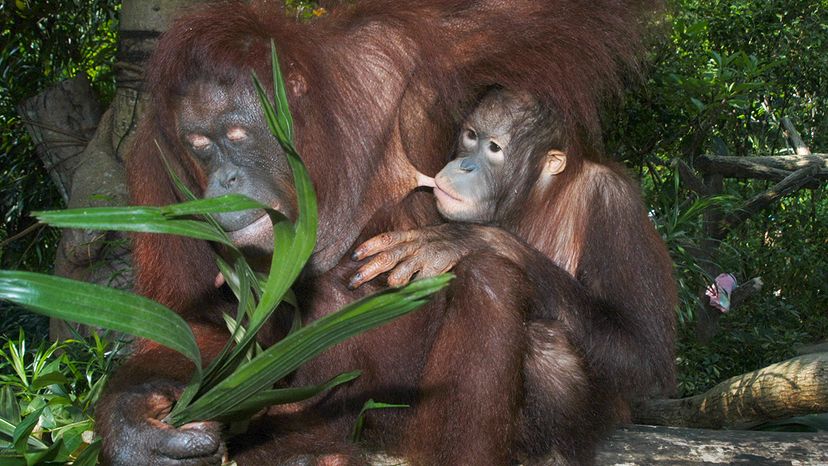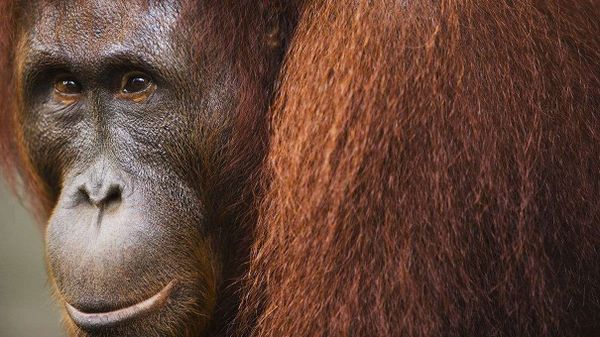
Ever nursed an infant? After a year or so, the whole process starts getting a bit tiresome. And while there's a lot of cultural variation in when humans wean their babies, it's rare for us to nurse children past the age of three. Other primates suckle their young for longer -- gorillas wean their young at around 4 years of age, and chimpanzees at 5 -- but nobody, it turns out, comes close to the true breastfeeding marathoners: the orangutans.
A new study published in in the journal Science Advances reports that although past studies show that baby orangutans nurse for six or seven years, the maximum is probably more like eight or nine. The critically endangered orangutan, found only in the rainforests of Sumatra and Borneo, are notoriously private animals and live to be around 40 years old. Their nursing behavior is difficult to study because babies generally do it at night, while hidden away in the nest. But it's important to understand lactation in this endangered primate in order to understand their reproductive cycles, as well as the amount of maternal investment necessary to successfully raise a baby orangutan.
Advertisement
We can learn much about an animal by analyzing its teeth, and the research team set out to discover just how long wild baby orangutans generally nurse by analyzing the barium in their dental samples. Teeth form rings in bone as they grow, much like layers in an Everlasting Gobstopper. Barium is a chemical element found in breast milk, so when barium is present in a ring of tooth skeletal tissue, that means the infant or young orangutan nursed that year.
They found that although the barium levels in four individual orangutan babies decreased after the first year of life, the barium could be detected through their eighth or ninth year of life. They also found that barium levels were higher during some parts of the year than others, suggesting the young often eat fruit when it's available, but during times of fruit scarcity, they often return to nursing to supplement their diets.
Advertisement
